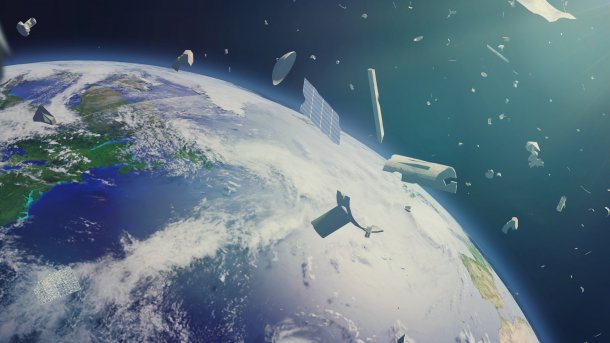Space debris crashes into the roof: US family wants money from NASA
In March, space debris crashed into the roof of a family from Florida. They are now campaigning for lighter compensation rules.

(Image: Dotted Yeti/Shutterstock.com)
A family from the US state of Florida is in talks with the US space agency NASA to find a simpler way of compensating citizens who suffer damage from space debris. In this particular case, parts of an old battery from the International Space Station (ISS) crashed into the roof of the family from southwest Florida. While fortunately no one was injured, the building was damaged. The family is claiming this and the shock in their claim for damages of 80,000 US dollars.
The case highlights the bizarre legal situation that currently applies in the USA for damage caused by space debris: if the debris had been of Russian or Chinese origin, for example, it would have been easier for those affected to receive compensation, according to the online magazine Ars Technica. This is because the so-called Space Liability Convention, which was agreed between the space powers 50 years ago, would apply. However, if the waste is of US origin, there is no simple and standardized procedure.
Family is not just about the money
The family from Florida would now like to set a precedent in precisely such a procedure. That is why the claim for damages has remained modest by US standards, according to the family's lawyer. In discussions with NASA and after filling out a form, the space agency now has six months to review the case. It could then compensate the family under the Federal Tort Claims Act, for example. However, the US law from 1946 only allows this up to a maximum of 25,000 US dollars. Any further compensation would have to be approved by the US Attorney General. However, NASA can also simply refuse – in this case, the family has already announced that it will go to a US federal court.
Videos by heise
The space debris that crashed into the family's roof was a piece of Inconel metal alloy weighing more than 700 grams. This is considered corrosion-resistant and is intended for high-temperature applications, which is why it was able to survive the fall from space so well. After being replaced on the ISS, the part was supposed to burn up in the atmosphere in a controlled manner with an old space freighter. Because its departure was missed, NASA opted for an uncontrolled crash.
A precedent?
According to the space agency, the case could set a precedent. As experts have long predicted an increase in space debris hitting the earth, a concession by NASA or the US government would have far-reaching financial consequences.
(mki)